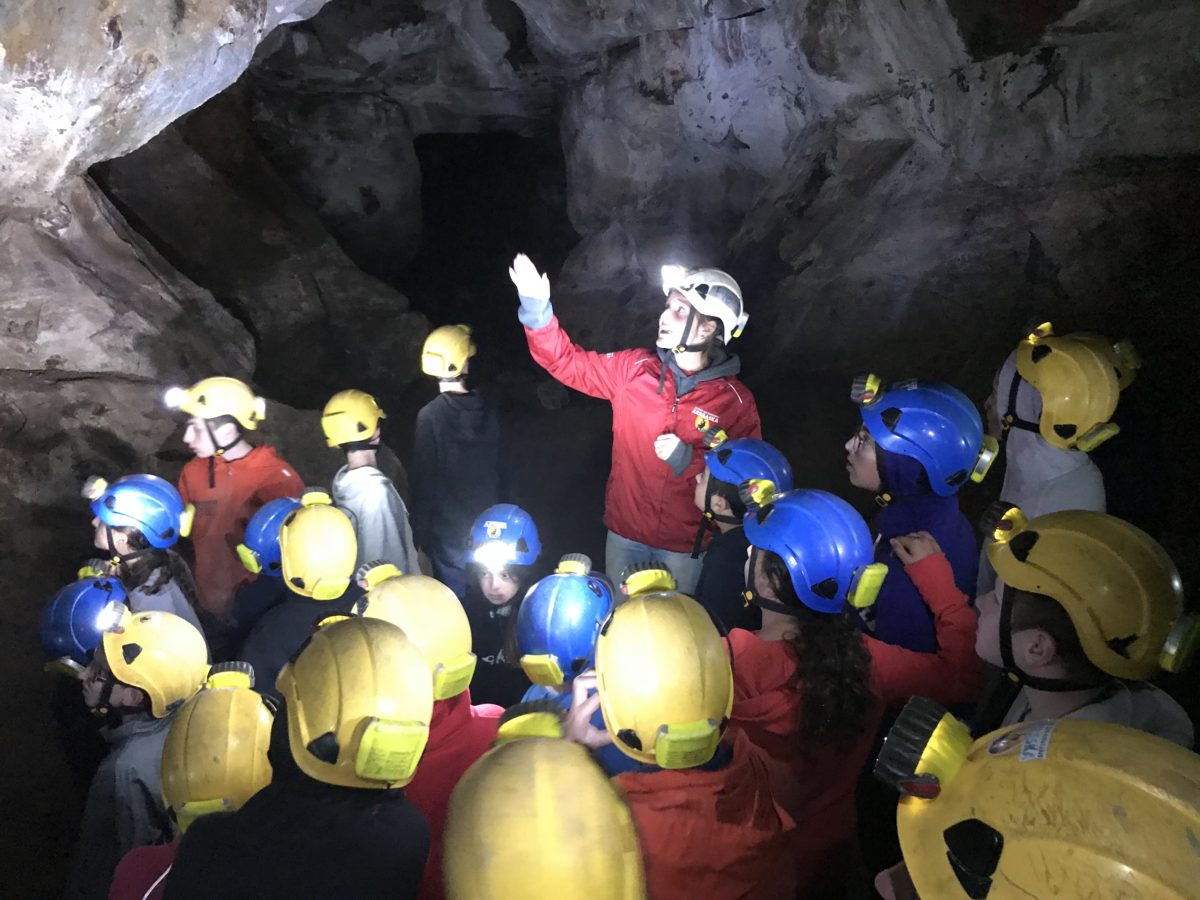Sure for some folk it is “Black Friday” or a “day off” – but at OJCS it is our Winter Professional Day and we are excited to spend a day together learning! We want you to be as excited about what we are learning and what it will mean for our school as we are, so I will once again liveblog the day.
[A liveblog is as it sounds – I am typing live as it is happening. Which means it will come even more unedited than normal!]
9:00 AM “Speed-Geeking”
We began the day with “Speed-Geeking” – a quick rotation (about 20 minutes a station) where the cohort of teachers working with Silvia Tolisano this year (our “DocuMentors”) have each chosen a tool they have begun learning about and think other teachers would be excited to add to their growing repertoire of innovative pedagogies.
Explain Everything
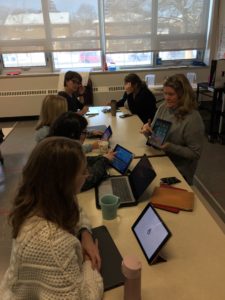 In this session, they are learning about how to use the “Explain Everything” app to create tutorials, to have students better show their work, etc. Lots of great conversation about how this might apply in Math classes – not just showing me the answer, but how they got there. What a great example of documentation not just of learning, but as learning! Jewish Studies Teachers are brainstorming ways they could use the app to demonstrate ability to retell the narrative of holidays. I can tell already that a lot of teachers are going to be looking to use this in the class – across subjects and grades. Twenty minutes goes fast! On to the next one…
In this session, they are learning about how to use the “Explain Everything” app to create tutorials, to have students better show their work, etc. Lots of great conversation about how this might apply in Math classes – not just showing me the answer, but how they got there. What a great example of documentation not just of learning, but as learning! Jewish Studies Teachers are brainstorming ways they could use the app to demonstrate ability to retell the narrative of holidays. I can tell already that a lot of teachers are going to be looking to use this in the class – across subjects and grades. Twenty minutes goes fast! On to the next one…
Flipgrid
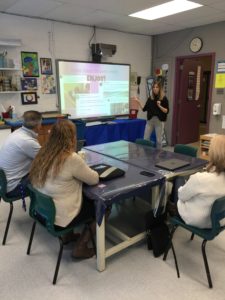 In this session, teachers are being wowed by what they can do with Flipgrid. This has become a very hot tool in the education world and we have already begun using it at OJCS (as teachers and with students). It is a very good tool for shared reflection, a really import skill if one is going to “own their own learning” (north start alert!). You can also develop virtual “pen pals” through FlipPals – exchanging videos with students from all over the globe. We definitely do “learn better together” (north start alert!)! It is always exciting to watch teachers be excited and get excited. Right now the teachers are using a QR code to take them to two live OJCS Flipgrids being used in Grade 5 – one for our new “Genius Hour” prototype and one to share about books they love. It is another example of how 21st century learning changes the where, when and how of learning. Students can add new videos anytime and anywhere…and they are! It is also a great tool for teachers – so we created our own Flipgrid for our teachers to share their ideas with each other and with the world. Time is flying…
In this session, teachers are being wowed by what they can do with Flipgrid. This has become a very hot tool in the education world and we have already begun using it at OJCS (as teachers and with students). It is a very good tool for shared reflection, a really import skill if one is going to “own their own learning” (north start alert!). You can also develop virtual “pen pals” through FlipPals – exchanging videos with students from all over the globe. We definitely do “learn better together” (north start alert!)! It is always exciting to watch teachers be excited and get excited. Right now the teachers are using a QR code to take them to two live OJCS Flipgrids being used in Grade 5 – one for our new “Genius Hour” prototype and one to share about books they love. It is another example of how 21st century learning changes the where, when and how of learning. Students can add new videos anytime and anywhere…and they are! It is also a great tool for teachers – so we created our own Flipgrid for our teachers to share their ideas with each other and with the world. Time is flying…
iMovie
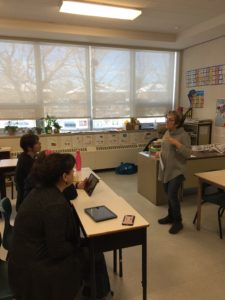 Do you know how amazing it is to watch a teacher who was nervous and reluctant to try a tool wind up teaching other teachers about that tool? I do! Because I am watching it happen in real time…iMovie isn’t so much the chiddush here, but for teachers to better understand how using video as a tool for documentation of/as/for learning is so critical for developing the artifacts we need to better understand their growth and to better explain that growth for parents. One issue that has come up is how great video is for helping students for whom writing is a challenge be able to better express all that they are capable of. [Side note: Watching the cohort begin to use similar language from the work they are doing with Silvia shows you that the learning is beginning to stick. It was the same from our last PD day when the NoTosh Design Team presented in a similar fashion and began to speak the new language.] [Side side note: Considering how many years across so many organizations I have worked with Silvia, it is extra special. I have missed all that Silvia has brought to my last three jobs. And to me.] [Super inside side side note: I see you Andrea Hernandez. We’re not done with you!]
Do you know how amazing it is to watch a teacher who was nervous and reluctant to try a tool wind up teaching other teachers about that tool? I do! Because I am watching it happen in real time…iMovie isn’t so much the chiddush here, but for teachers to better understand how using video as a tool for documentation of/as/for learning is so critical for developing the artifacts we need to better understand their growth and to better explain that growth for parents. One issue that has come up is how great video is for helping students for whom writing is a challenge be able to better express all that they are capable of. [Side note: Watching the cohort begin to use similar language from the work they are doing with Silvia shows you that the learning is beginning to stick. It was the same from our last PD day when the NoTosh Design Team presented in a similar fashion and began to speak the new language.] [Side side note: Considering how many years across so many organizations I have worked with Silvia, it is extra special. I have missed all that Silvia has brought to my last three jobs. And to me.] [Super inside side side note: I see you Andrea Hernandez. We’re not done with you!]
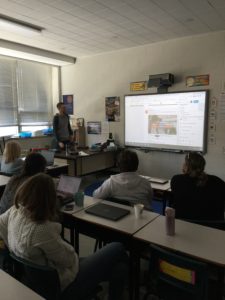 What’s the best way to do PD in 2018? Get on Twitter and join the conversation. Connecting with other schools and communities? Twitter. Expand our learning networks? Twitter. Learn from leading international educators? Twitter. Free, open and a sharing community? Twitter. Learning about Twitter from a teacher who just recently joined Twitter and is super-excited about it? Well that’s OJCS. #TheOJCSDifference indeed! We are being walked through a tweet, hashtags, replying, etc. Teachers are seeing how easy it is to use and I have a feeling there will be a few more members of the Twitterverse by the time the morning comes to and end! We’re almost done…one more to go!
What’s the best way to do PD in 2018? Get on Twitter and join the conversation. Connecting with other schools and communities? Twitter. Expand our learning networks? Twitter. Learn from leading international educators? Twitter. Free, open and a sharing community? Twitter. Learning about Twitter from a teacher who just recently joined Twitter and is super-excited about it? Well that’s OJCS. #TheOJCSDifference indeed! We are being walked through a tweet, hashtags, replying, etc. Teachers are seeing how easy it is to use and I have a feeling there will be a few more members of the Twitterverse by the time the morning comes to and end! We’re almost done…one more to go!
Skype
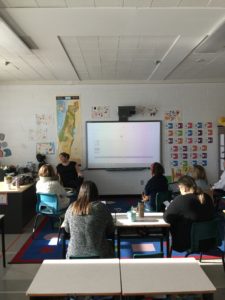 Skype isn’t just for connecting with grandparents! (Actually that’s kinda FaceTime these days, but still…) There is so much happening on Skype these days, especially for education. That’s why they call it “Skype in the Classroom“! Between Mystery Skypes and Skype Virtual Tours and Skype Collaborations and Skype Guest Speakers there is really no end to the where in the world the learning can take you. As has been true in other sessions, teachers of every age and every subject are beginning to dream what could be true for them. Kitah Hay can take a virtual tour of a a kibbutz. Grade One can have a book read to them by a famous author. Middle School can have a Mystery Skype in Hong Kong. And I have a feeling they will!
Skype isn’t just for connecting with grandparents! (Actually that’s kinda FaceTime these days, but still…) There is so much happening on Skype these days, especially for education. That’s why they call it “Skype in the Classroom“! Between Mystery Skypes and Skype Virtual Tours and Skype Collaborations and Skype Guest Speakers there is really no end to the where in the world the learning can take you. As has been true in other sessions, teachers of every age and every subject are beginning to dream what could be true for them. Kitah Hay can take a virtual tour of a a kibbutz. Grade One can have a book read to them by a famous author. Middle School can have a Mystery Skype in Hong Kong. And I have a feeling they will!
10:30 AM “Strong Connections Through Personalization”
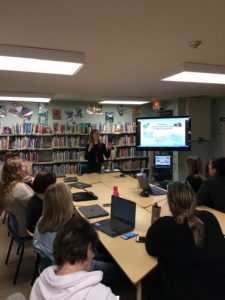 This is probably the most traditional and formal of our sessions today. Our new Director of Special Needs Sharon Reichstein is leading a session on how by beginning with relationships we can better meet the diverse needs of all our students. As a school committed to being as inclusive as our resources allow for, and a school committed to moving towards a personalized learning approach for all its students, using one (personalization) to help achieve the other (inclusion) is both natural and super complicated. Or rather, it might make sense philosophically or in the abstract, but the magic or the artistry is in what happens at 9:15 AM on a Tuesday in a French class with a specific group of children.
This is probably the most traditional and formal of our sessions today. Our new Director of Special Needs Sharon Reichstein is leading a session on how by beginning with relationships we can better meet the diverse needs of all our students. As a school committed to being as inclusive as our resources allow for, and a school committed to moving towards a personalized learning approach for all its students, using one (personalization) to help achieve the other (inclusion) is both natural and super complicated. Or rather, it might make sense philosophically or in the abstract, but the magic or the artistry is in what happens at 9:15 AM on a Tuesday in a French class with a specific group of children.
It is hard to capture a session like this appropriately and it might be the case that we share out the slides or do a version of this with our parents and community. After watching a video of students describing what it feels like for them to live with various learning needs, our teachers are engaging in a simulation that shows them what a reading disability feels like. And it is eye-opening to say the least…
And then a video of students struggling with organizational issues and a simulation…
And then a video of students struggling with attention issues and a simulation…
And then a video of students struggling with math issues and a simulation…
And then a video of students struggling with writing issues and a simulation…
What is important to name is that it isn’t that our teachers are being exposed to anything they don’t already know – at least intellectually. And it isn’t that our teachers don’t already make all kinds of accommodations for all kinds of students – they do. But a radical dose of empathy is always healthy to swallow. And I love how our teachers are responding to it…
And I love what it is going to mean for our students…
1:00 PM “The Prototype Protocol Fishbowl”
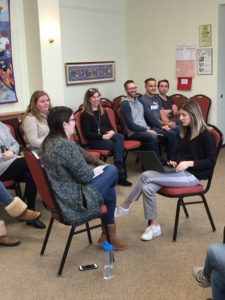 For our last session this afternoon, we went back to reconnect dots with the “Prototype Protocol” our NoTosh Design Team created to help our teachers understand how to translate the many innovative ideas they come up with into specific prototypes as part of the design-thinking culture we have created here at OJCS. To help make it real, we created a “fishbowl” and had teachers volunteer to act out the first couple of steps in the protocol which deal with finding a peer to test assumptions. It was great on two different levels. It was great to hear more about some of the amazing prototypes that are in varying phases of work. And it was great for the teachers to see real examples of how to move the work forward. When you plant seeds, it takes time, water, sunlight and a little luck to bring forth flowers. At OJCS, there are a lot seeds in the ground..imagine how beautiful it is going to be when they bloom.
For our last session this afternoon, we went back to reconnect dots with the “Prototype Protocol” our NoTosh Design Team created to help our teachers understand how to translate the many innovative ideas they come up with into specific prototypes as part of the design-thinking culture we have created here at OJCS. To help make it real, we created a “fishbowl” and had teachers volunteer to act out the first couple of steps in the protocol which deal with finding a peer to test assumptions. It was great on two different levels. It was great to hear more about some of the amazing prototypes that are in varying phases of work. And it was great for the teachers to see real examples of how to move the work forward. When you plant seeds, it takes time, water, sunlight and a little luck to bring forth flowers. At OJCS, there are a lot seeds in the ground..imagine how beautiful it is going to be when they bloom.
So that’s it! Another innovative PD Day has come and gone. And we even have an hour or left to hit the “Black Friday” sales before Shabbat. Days like today remind me how lucky I am to work in this field. Schools like ours remind me how revolutions in education don’t happen in think-tanks or large membership organizations; they happen in schools – big and small, in large cities and small towns. They happen in Jewish day schools. It is happening here. And we are just getting started…




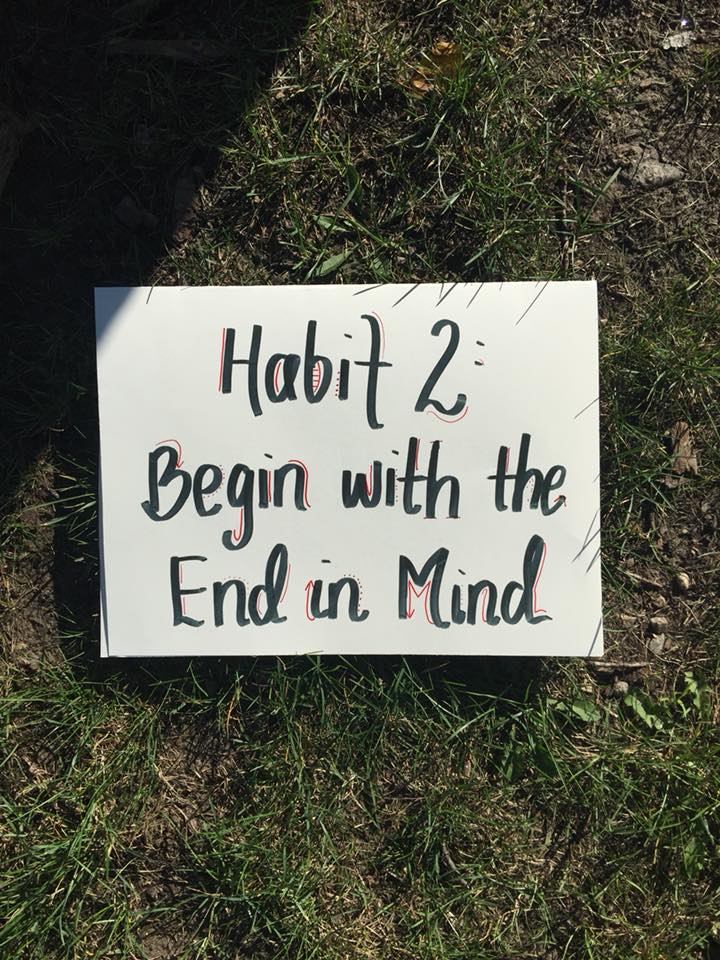

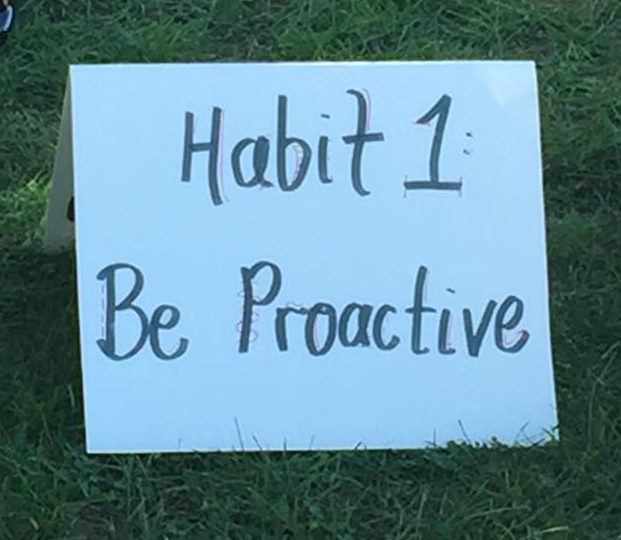
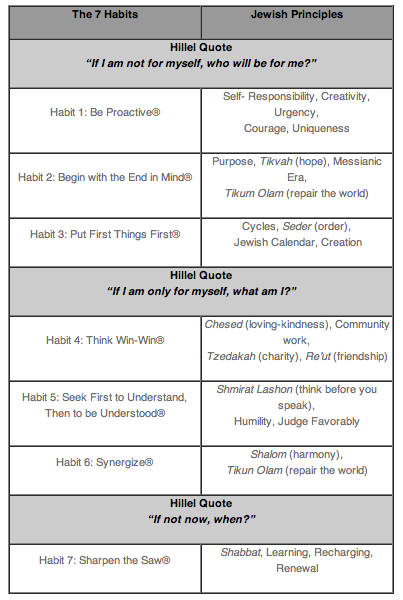
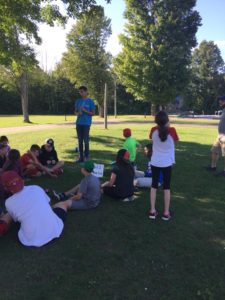
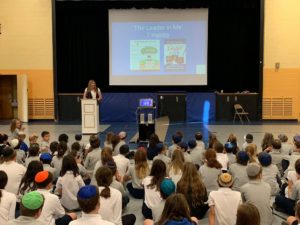



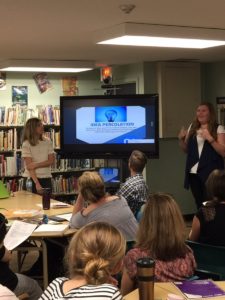
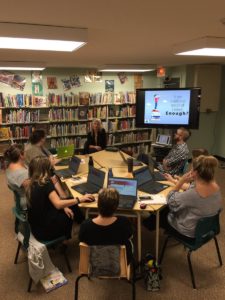
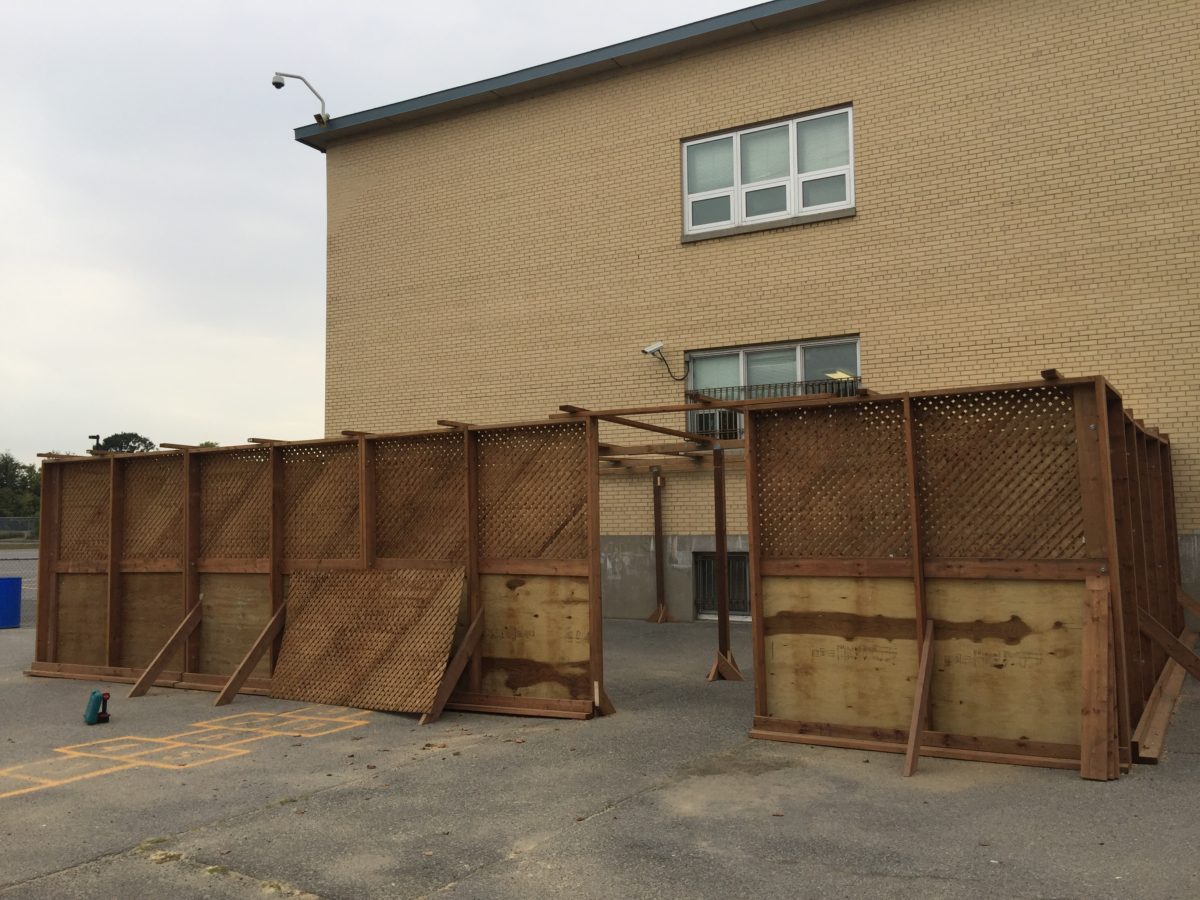
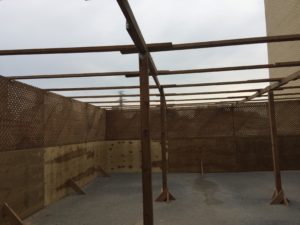 else like it on the Jewish Calendar – sitting outside in a sukkah you built yourself (which is pretty much the one and only thing I actually can and do build), with handmade decorations from your children, enjoying good food with friends and family in the night air, the citrusy smell of etrog lingering and mixing with verdant lulav – this is experiential Judaism at its finest.
else like it on the Jewish Calendar – sitting outside in a sukkah you built yourself (which is pretty much the one and only thing I actually can and do build), with handmade decorations from your children, enjoying good food with friends and family in the night air, the citrusy smell of etrog lingering and mixing with verdant lulav – this is experiential Judaism at its finest.
